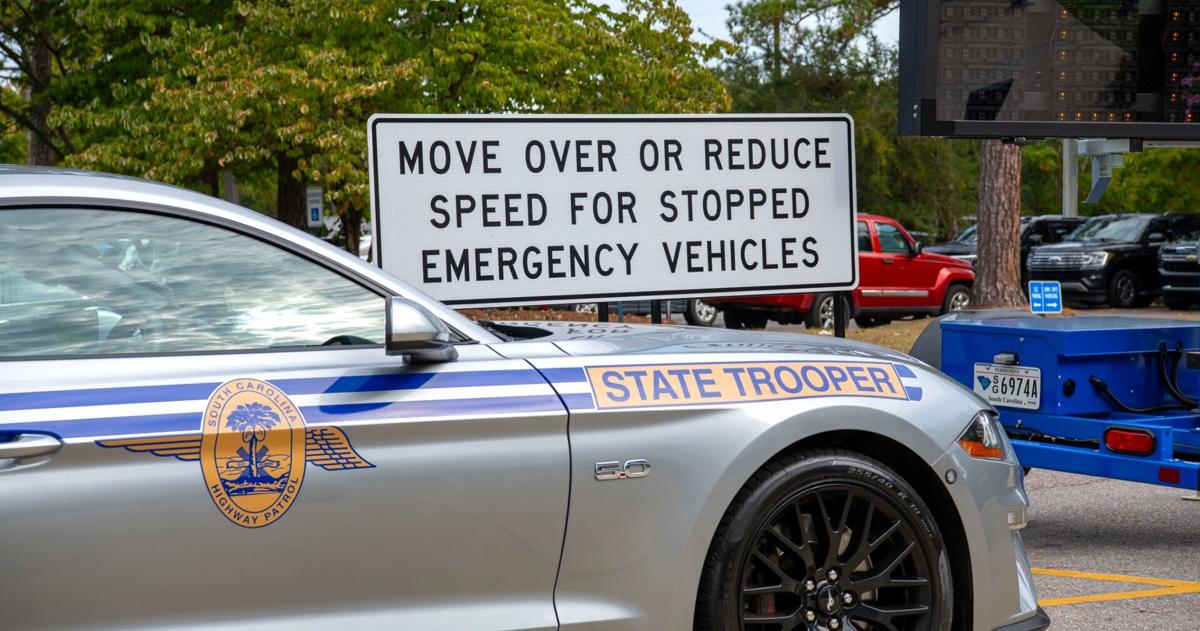
South Carolina’s pioneering move-over law didn’t get a lot of attention when it was passed in 2002. Oh, law enforcement celebrated, and there was a smattering of news stories. Beyond that, about the only time it gets any press is when AAA includes it in the lists of highway safety bullet points heading into travel holidays — and even then it’s often cited simply as the move-over law, without any explanation of what that means.
So more than two decades later, few people are even aware that state law requires them to slow down and, if possible, move over into the next lane when they approach the flashing lights of police, fire trucks, ambulances and tow trucks parked on the side of the road.
Prior to this month, The Post and Courier had published precisely one news article that mentioned the law. A 2018 article in Columbia’s State newspaper included it among what it called “8 SC driving laws — or lack thereof — you may not know about.” Three of the entries were actions that aren’t against the law, so you could think of the move-over law as one of South Carolina’s five most obscure highway laws, at least by that reporter’s reckoning.
Little wonder, then, that one Highway Patrol trooper was killed and two others injured in the past month while they handled traffic stops. Or that countless others are injured every year when cars crash into them. The only surprise is that the patrol says only seven have been killed while they worked traffic stops, at least since the law took effect. Of course local police, paramedics, firefighters and tow truck operators have been injured and killed as well, but no one keeps a count.
One reason the law never generated much publicity has to do with the penalty: a fine of $300 to $500, which marked only a $200 increase over an older law against failing to yield to emergency vehicles, and no license points.
Add that to the difficulty of enforcing the law — the only witness is usually the emergency worker who’s too busy to pursue a violator, and even when drivers run into vehicles or injure or kill someone, it’s difficult to prove they could have moved into the next lane — and it’s surprising that anyone knows about it. The Post and Courier’s Caitlin Bell reports that police usually don’t even bother writing a ticket when they can, opting instead to charge drivers for other moving violations that carry higher penalties. We don’t understand why they wouldn’t do both, but even Richland County Sheriff Leon Lott said at a news conference Monday that his deputies had written their first move-over ticket the previous weekend.
Contrast the move-over fine with the 2017 law that imposes a fine of $1,000 for speeding through a work zone, and increases that fine to $5,000 if anyone is injured: Signs at the entrance to work zones tout fines that are big enough to get drivers’ attention — which we need with the move-over law.
A four-digit fine for failing to slow down and move over probably won’t increase the number of people charged, at least not dramatically, because it still won’t be an easy law to enforce. But with sufficient publicity — similar highway signs and messages on the Transportation Department’s overhead message boards highlighting the penalty, an aggressive public service campaign and coordinated efforts by law enforcement to get the word out when charges are brought — we could very well use higher fines, and driver’s license points, to change behavior. And that’s our ultimate goal.



